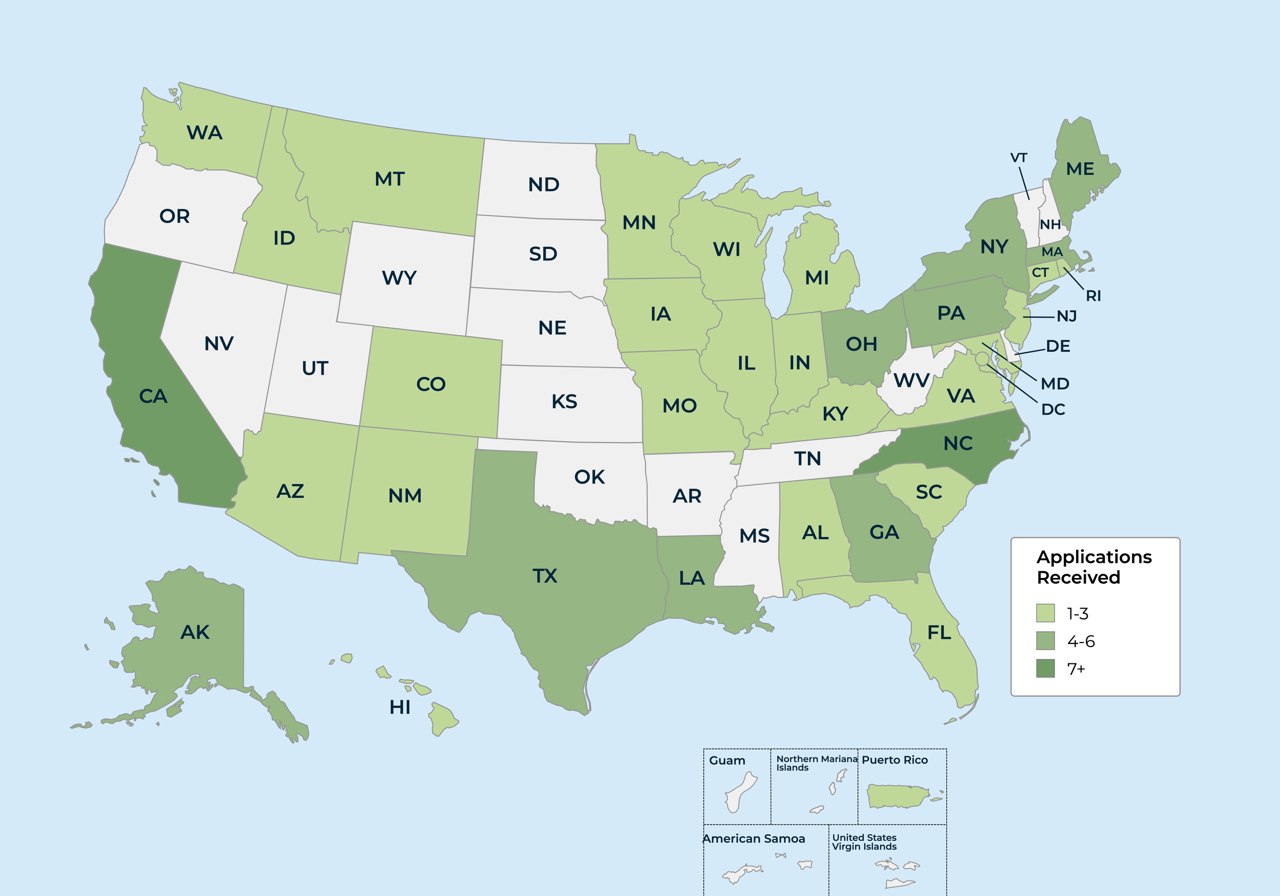Grant Applications Reflect High Level of Community Interest in Climate Resilience

The Climate Smart Communities Initiative received 118 grant applications from communities across the country seeking assistance with their climate resilience plans and projects.
“This is a clear signal of significant demand for climate adaptation and resilience support,” said John Nordgren, managing director of the Climate Resilience Fund, one of six partners in the CSCI. “These communities are facing a wide array of climate-related challenges, from more intense storms to more frequent fires, and while the challenges they face vary widely, there is an emerging recognition that preparedness is more efficient and cost effective than response and recovery. And CSCI harnesses the expertise and resources that communities facing climate-related impacts need to prepare.”
Approximately one third of the applications came from communities that are taking the first steps in their climate resilience efforts, while the remaining applications are divided relatively evenly between communities that already understand their vulnerabilities and now need to create a plan, and communities that already have a plan and want to move into implementation. The climate-related challenges cited most often were flooding and extreme heat, while there also was a notable uptick in applications from communities facing challenges with wildfire and air quality.
While the grants can go to communities that are at any stage in the process, and facing any of these climate issues, the program is, by design, focused on assisting smaller communities that are experiencing significant challenges, based on environmental as well as socioeconomic considerations. With that in mind, the initiative’s program requires that each application be submitted by a cross-sector team composed of a local government partner, a community-based organization, and an adaptation professional. The teams selected receive funding, as well as technical guidance and additional resources, including training in the Steps to Resilience framework. All of this support is aimed at enabling them to advance their climate resilience plans or projects over the ensuing twelve months and build their capacity to continue that progress beyond the grant period.
“Because the adaptation professional on each project team plays a critical role in ensuring the work incorporates best practices of adaptation, their organization had to be one of the more than 125 that have been accepted into the Registry of Adaptation Practitioners,” explained Arden Drake, senior scientist from EcoAdapt, the CSCI partner leading the development of the Registry. “The organizations listed in this new resource have been reviewed and approved to ensure that they possess the depth of expertise and skills needed to provide communities with effective adaptation services, whether as part of this initiative or otherwise.”
The CSCI anticipates making at least 20 awards of approximately $100,000 each in 2025. “However, we are actively working to expand our grants budget this year and over the years to come,” added Nordgren. “An increasing number of philanthropic funders, as well as civically minded companies, are expressing interest in the initiative, as they see the accelerating parade of extreme weather events, and the social, economic, and environmental costs that are burdening communities in every corner of the country.” There also is increasing recognition of the cost effectiveness of investing in preparedness. A recent report by the U.S. Chamber of Commerce, the U.S. Chamber of Commerce Foundation, and Allstate, for example, found that every dollar invested in preparedness now can save a community $13 later, including $6 in savings for damage and cleanup costs and $7 in savings related to job losses and other economic effects. As Marc DeCourcey of the U.S. Chamber of Commerce Foundation explained during the launch of that report, “It’s critical that government and business decision makers at every level understand how such investments can improve the safety and strengthen the resiliency of their communities.”
The CSCI is currently reviewing grant applications and expects to announce awards this summer. For news and updates, please join the initiative’s email list and follow the initiative’s page on LinkedIn.
